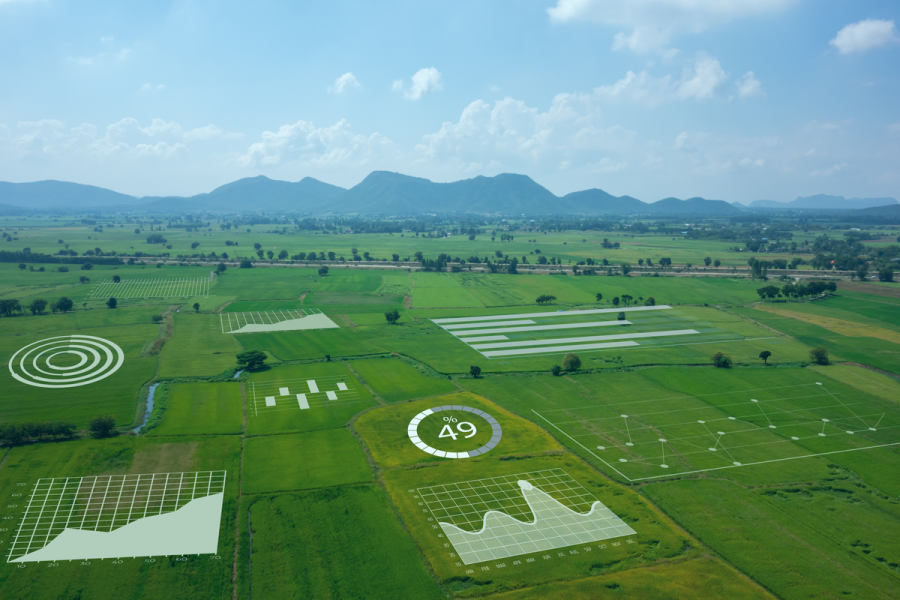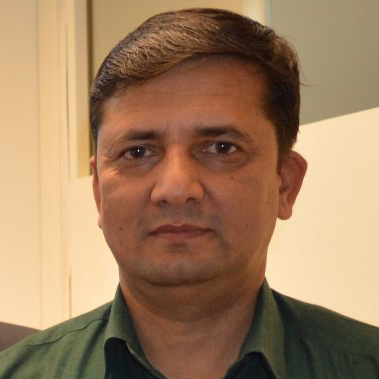Columns
What's in the agriculture budget
The government's financial plan has also emphasised the digitisation of agriculture.
Shankar Sapkota
Ballooning imports of farm products is a big challenge for a country like Nepal, where agriculture employs around 65 percent of the population and contributes about 27 percent to the gross domestic product. The budget for the coming fiscal year 2021-22 has accorded priority to the agriculture sector. The policies and programmes mainly focus on livelihood improvement and employment generation through commercialisation and mechanisation of agriculture. The government's annual financial plan has also emphasised digitisation of agriculture which includes online farmer registration, digital soil mapping and Mero Kitta app for land management. Another highlight is the establishment of a chemical fertiliser factory in Nepal to ensure a regular and long-term supply of plant nutrients.
Looking at the records of the past 10 years, it is revealed that the Ministry of Agriculture and Livestock Development spends around 80 percent of its annual budget allocation, one-third of it on buying chemical fertiliser. The government has earmarked Rs45.09 billion for the farm sector in the next fiscal year. This includes conditional and supplementary budgets for the provinces and local units.
Key programmes
The farmer registration programme will be continued in the next year, and around 3.8 million farm households will be listed in the online system in the next five years. This is a major shift in digital agriculture, and all subsidy mechanisms and support packages for farmers will gradually come under this online system. The digital soil mapping programme will be instrumental in identifying soil health and improving the fertility of the soil. Around 10,000 farmers will be able to get Kisan Credit Cards from the banking system to link them with the digital system.
An irrigation area-focused rice production programme will be implemented in the Tarai region. Under this scheme, rice and fine rice production, and processing and storage programmes will be implemented jointly with the provinces and the private sector. In addition, maize and soybean mission programmes will be continued next year. These two crops are the basic raw materials for the feed industry. To increase the seed replacement rate from the current 20 to 22 percent, a nationwide "seed guarantee for food security" programme will be carried out to make quality seeds available on time. Towards this end, $5.3 million has been allocated for a seed sufficiency programme. The production and availability of breeder seeds and foundation seeds will be ensured by the Nepal Agricultural Research Council.
Breed improvement programmes will be continued next year for better and sustainable production of meat and milk. Promotion of embryo transfer; use of sexed semen; support for nucleus, breeder and multiplication herds; promotion of fish, meat and dairy marketing; and establishment of a pedigree performance recording system are some of the highlighted programmes for next year. Forage and fodder management; mineral mapping in dairy pocket areas; establishment of holding yards for animals; fish value chain management; and insurance programmes for the livestock sector are the focused programmes. For the vaccine production and campaign programme, around Rs10 million has been allocated for next year.
The subsidy on chemical fertiliser will be continued, and the supply system will be monitored by digital means. A Rs12 billion budget has been allocated for this. Support for organic production, processing and marketing will be scaled up; and a national level organic centre will be established under the Agriculture Ministry. The knowledge and experience of indigenous crops and breeds will be further explored, preserved and utilised. A farmer-friendly organic certification system will be developed based on a participatory guarantee system, good agriculture-livestock-veterinary practices and integrated pest management practices.
Big funding
The budget statement has given priority to the commercialisation and mechanisation of agriculture. The Prime Minister Agri Mechanisation Programme will be made more involved to develop the sector under a value chain model. In total, the Prime Minister Agri Mechanisation Programme has allocated more than Rs7 billion for next year. Land consolidation and pooling, block production, contract farming and establishment of model land banks are some of the focused programmes for next year. In addition, a budget of nearly Rs500 million has been provisioned for a youth-focused entrepreneurship development mission programme.
For agriculture research, a Rs300 million budget has been allocated for the upcoming year. At least 10 crop varieties will be approved and registered; and 15 new technologies for crops, livestock and fisheries will be developed by the next fiscal year. With technical support from the Israeli government, two farms will be developed as a model centre of agricultural excellence. Other major programmes such as strengthening and regulating the food quality control system; establishing a one-window quarantine system; facilitating international trade; establishing an auction centre; and promoting the Nepali tea trademark are planned for next year. For producing, processing and marketing Nepal tea and coffee, a budget of over Rs120 million has been set aside.
The government has earmarked Rs400 million for provincial agriculture and livestock market development based on the concept of the One Province, One Market model. Around Rs100 million has been allocated for the construction of cold storage facilities which will be implemented with matching funds support from the municipalities. Adequate budgets have been allocated for projects supported by different development partners. Around $8.2 million has been set aside for the Rural Enterprise and Economic Development Project, a new scheme started this year with loan support from the World Bank.
For the nuts and fruits in hilly areas project, which is in the design phase, a budget has been proposed for next year. A budget allocation of around Rs120 million has been proposed for the continuation of the minimum support price mechanism proposed. The One Municipality, One Nursery programme will be started from the next fiscal year. Around Rs500 million has been set aside for the coming fiscal year for the construction of food grain storage. In addition, school agricultural programmes, small irrigation, and custom hiring programmes and implementation of the Slaughterhouse and Meat Inspection Act are some of the cross-cutting major programmes proposed for the fiscal year 2021-22, which will be jointly implemented with local and provincial governments, cooperatives and the private sector on a cost-sharing basis.




 12.12°C Kathmandu
12.12°C Kathmandu















